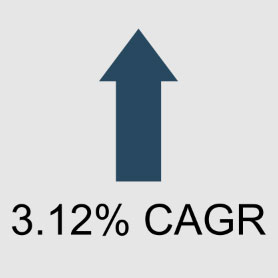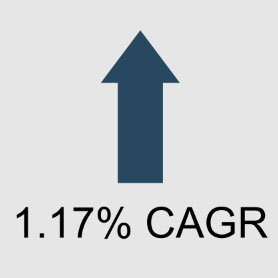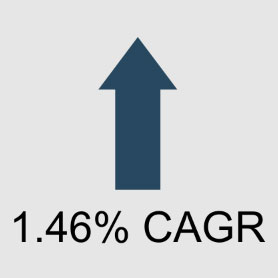California Alcoholic Beverage Market: Regulations, Statistics, Trends, and Wholesalers
California is the largest state in the U.S. and, as such, it is one of the most dynamic and important markets for spirits entrepreneurs. Many new and established brands hope to establish a strong foothold in California.
We’ve prepared a guide to the California Market, which covers the following topics:
- Category consumption trends for spirits, wine, and beer
- Regulatory structure and oversight in California
- Essential state laws, procedures, and regulations
- Market facts and key players
California had an approximate population of 39 million people in 2022 with 28.8 million of them within the legal drinking age bracket. This makes it the largest state in the country and the top state in beverage alcohol consumption.
If you need help establishing your presence in California, provide your information below, and we’ll contact you to share more about how we can help.
Consumption Trends In California
California Spirits Consumption from 2018-2022 by 9-Liter Cases (Millions)

California Wine Consumption from 2018-2022 by 9-Liter Cases (Millions)

California Beer Consumption from 2018-2022 by 9-Liter Cases (Millions)

California State Alcohol Licensing
All U.S. states are regulated at a federal level according to the Federal Alcohol Administration Act. At a state level, California is overseen by the California State Department Of Alcoholic Beverage Control (ABC). The agency is responsible for licensing, tax collection and auditing, fee collection, and enforcing the state’s laws and regulations. Selling alcohol in California, or any state you may be looking to do business in, requires knowledge of the state, county, and local alcohol laws to remain compliant. We’ve put together some of the most common questions covering the off and on-premise environments in the state. Should you have any other selling-related questions, please feel free to reach out to us.
- Manufacturers (breweries, wineries, distilleries, cideries, meaderies, and rectifiers)
- Wholesalers, also known as distributors
- Retailers (on-premise and off- premise)
In the simplest terms, manufacturers, sometimes referred to as producers, make alcohol products. Wholesalers sell the alcohol to the retailers. Retailers sell the alcohol to consumers. While there are some exceptions to this flow of goods, this is the federally regulated route to market.
All businesses that deal with manufacturing, distributing, selling, or importing alcohol in California must be licensed.
As of 2022, there are over 500 licensed distillers and bottlers, over 1,100 breweries with active licenses, and approximately 2,843 registered wineries in the state of California.
Common Licenses for Manufacturers in California
Distilled Spirits Manufacturer (Type 04) – authorizes holder to package, bottle, rectify, flavor, and more. This license type is subject to Responsible Beverage Service (RBS) requirements and requires alcohol servers and managers of alcohol servers to be RBS certified.
Distilled Spirits Manufacturer’s Agent (Type 05) – authorizes the holder to possess, export, or cut, blend, mix, flavor, and color distilled spirits for their own account or for the account of another manufacturer, manufacturer’s agent, rectifier, or wholesaler, and the packaging and the sale or delivery thereof.
Rectifier (Type 07) – authorizes the holder to cut, blend, rectify, mix, flavor, and color distilled spirits and wine upon which excise tax has been paid and, whether rectified by the licensee or another person, to package, label, export, and sell the products to persons holding licenses authorizing the sale of distilled spirits.
Distilled Spirits Rectifier’s General (Type 24) – authorizes the holder to cut, blend, rectify, mix, flavor, and color distilled spirits and, whether so cut, blended, mixed, flavored, or colored by the licensee or any other person, to package, label, export, and sell the distilled spirits to distilled spirit manufacturers, distilled spirits manufacturers’ agents, distilled spirits wholesalers, distilled spirits general importers, rectifiers, and distilled spirits general rectifiers.
Craft Distiller (Type 74) – authorizes the holder to manufacture up to 150,000 gallons per fiscal year of distilled spirits, excluding brandy. In addition to other privileges, this licensee may sell distilled spirits to consumers for consumption on the premises in a bona fide eating place, which is located on the licensed premises.
California State Alcohol Regulations
California is an open state, meaning the sale and distribution of alcoholic beverages is handled by private entities but regulated by state legislators.
Shipping and Selling to Consumers
In California, distillers and retailers may sell or deliver alcohol to consumers if certain conditions are met. Below is a breakdown of these specific distribution and sales regulations:
In-State Craft Distillers:
- Produces up to 150,000 gallons of distilled spirits per year
- May sell distilled spirits to consumers for consumption on the premises in a bona fide eating place, which is located on the licensed premises.
- May not self-distribute to retailers
Out-of-State Spirits Manufacturers
- Require and Out-of-state Distilled Spirits Shipper’s Certificate to ship distilled spirits to licensed importers within this state.
- May not self-distribute to retailers
In-State Wineries
- Persons or entities holding a California winegrower’s license may ship directly to consumers within the state of California.
- Licensed California wholesalers or entities holding a California winegrower’s license may ship wine directly to retail licensees within the state
Out-of-State Wineries:
- Any person currently licensed in any state other than California as a winery and who obtains a Wine Direct Shipper Permit may sell and ship wine directly to residents of California who are of legal drinking age, provided that it is for their personal use only and not for resale
Wholesalers:
- Purchase alcohol from in-state or out-of-state manufacturers
- Can sell alcoholic beverage to other licensed wholesalers and retailers
Retailers:
- Can sell product directly to consumers for on or off-premise consumption
Can deliver directly to consumers
Self-Pitch Distribution Model
Finding the right distributor is often cited as one of the most difficult challenges to building a brand in the U.S. There are thousands of brands and industry consolidation has led to fewer distribution companies to choose from in each market.
As such, one option available to emerging brands is to use Park Street’s self-pitch distribution model.
The self-pitch distribution model is similar to the three-tier traditional distribution model where the product is delivered to retailers, but the key difference is that sales and marketing are handled by the supplier.
Park Street’s CEO Explains Self-Pitch Distribution
Required Procedures for Alcohol Suppliers Selling in California
Label Registration
Label and product registration are not required for wine or distilled spirits in California. Malt beverage labels must be registered with the California ABC.
Price Posting
The state of California does not require any price posting at either the wholesale or retail level.
California Spirits Volume Sales By Category – 2022 Data
Spirit trends in California by volume and dollar sales in 2022.
| Category | Volume Sales Millions, 9-liter cases |
Dollar Sales |
|---|---|---|
| Straight Whiskey | 3.8 | 1.1 billion |
| Canadian Whisky | 1.4 | 584 million |
| Scotch Whisky | 1.4 | 964 million |
| Irish Whiskey | 1 | N/A |
| Gin | 1.2 | 394 million |
| Vodka | 9.7 | 3.6 billion |
| Rum | 2.3 | 1 billion |
| Tequila | 6.1 | N/A |
| Cordials/Liqueurs | 2.2 | 819 million |
| Cocktails(RTD) | 5.8 | N/A |
California Beer Volume Sales By Category – 2022 Data
See below for the beer trends in California by volume sales in 2022.
| Category | Consumption Volume Millions, 2.25 Gallon Cases |
Volume Sales barrels |
|---|---|---|
| Craft | 36.6 | 2.7 million |
| FMBs & Hard Seltzer | 49.4 | 3.6 million |
| Super & Super Premium | 24.8 | 1.8 million |
| Light | 106.3 | 7.7 million |
| Popular | 10.3 | 747 thousand |
| Imported | 119.7 | 8.7 million |
Source: Beverage Information Group
Coming Soon: Wine trends in California by volume and dollar sales in 2022.
Alcoholic Beverage Distributors Located In California
Any and all alcohol sold in the United States are subject to being done so through the three-tier system. What this means is suppliers and manufacturers must sell their products to a “middle tier” within the alcoholic beverage industry. This middle tier consists of both wholesalers and/or importers. The wholesalers and importers then market and sell products to on-premise and off-premise retailers.
If you’re looking for a list of distributors within the state of California, then the list below is what you’re looking for. You will find the most popular distributors listed below and if you’re looking for more information on distributors in other states, then be sure to check out the complete distributor list that we’ve put together. If you can’t find exactly what you’re looking for, please reach out to us for help or fill out one of the contact forms provided.
Click here for a complete list of alcoholic beverage distributors.
Buying Alcohol In California – Hours, Locations & Taxes
If you’re looking to learn the rules, regulations, and laws on buying beer, wine, and spirits within the state, then see below. Learn more about buying both off-premise and on-premise today.
FAQs on Buying Beer, Wine & Liquor in California
What is the alcohol tax in California?
California has a general sales tax of 6% that applies to all purchases of beer, wine, and spirits. Vendors selling liquor are also subject to a state and federal excise tax.
Can you buy liquor in grocery stores in CA?
Yes, you can buy alcohol in grocery stores that are licensed to sell in the state of California.
Can you buy alcohol in gas stations in California?
Yes, you can buy wine and beer in gas stations in the state of CA but there are marketing restrictions within the gas stations.
Can you buy alcohol on Sunday in CA?
Yes, you can buy alcoholic beverages on Sundays in California.
Does California allow direct-to-consumer shipping?
Yes and no. In California, they will ship wine directly to consumers but shipping beer and liquor is prohibited.
What times can you buy liquor, wine, or beer in California?
The sale of alcohol is allowed between the hours of 6 AM and 2 AM 7 days a week.
Can you order alcohol to go in California?
Yes, you can order alcohol to go in the state of California.
Where in California can buy alcohol off-premise?
You can buy alcohol off-premise in CA at any business location that has a license to sell alcoholic beverages for off-premise consumption. The condition is that they must be sold in packages that were made by the manufacturers.
Where can buy alcohol for on-premise consumption in CA?
You can buy alcohol for on-premise consumption at multiple locations throughout the state. Different locations such as restaurants, bars, taverns, night clubs, veteran’s clubs, licensed trains, licensed boats, and licensed airlines. You can also buy if you’re a passenger of a licensed vessel of more than 1000 tons. There are other locations such as licensed hospitals, convalescent homes or rest homes, nonprofit theatres, and bed and breakfast inns as well.
(Data Sources – abc.ca.gov)
Park Street connects suppliers, wholesalers, and distributors with one another. We also provide various types of services such as accounting, operations, business advisory, and more, giving brand owners a chance to focus on marketing their business while we do the rest! To learn more about the services provided, please fill out the form below and a member of our client development team will reach out to you.
Looking For An Importer, Distributor or Back-Office Solution?
Find out why Park Street is a leading distributor and solution in the wine & spirits industry. Contact us to find out exactly what we can do for your brand.
